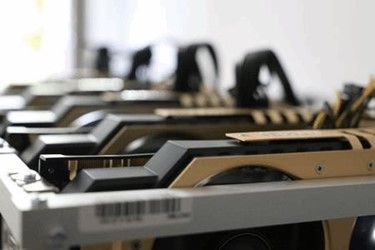IOTA Cryptocurrency Seeks To Become Backbone Of The IoT – Minus The Transactional Fees
By Jof Enriquez,
Follow me on Twitter @jofenriq

The IOTA Foundation is launching a free, more secure, and scalable alternative to Bitcoin and other cryptocurrencies. Unlike current cryptocurrencies, which rely on blockchain technology, the organization's namesake virtual currency features a "tangle" ledger system that could more appropriately harness the data-driven business transactions enabled by the Internet of Things.
To this end, IOTA and partners recently launched a micropayment-based data marketplace to collect and monetize the huge amounts of data being collected by 50 billion devices and sensors. While blockchain-enabled cryptocurrencies like Bitcoin and Ethereum rely on miners to validate transactions, IOTA believes this setup soon will no longer be feasible to handle the sheer amount of data.
IOTA claims that its new cryptocurrency, using "tangle" distributed ledger technology, is capable of processing more data quickly — while also doing away with transactions fees, since the system does away with miners.
"The tangle naturally succeeds the blockchain as its next evolutionary step, and offers features that are required to establish a machine-to-machine micropayment system," IOTA mathematician Serguei Popov stated in a white paper.
IOTA "does not require mining at all but instead relies on every micro transaction to perform two small validations as a requirement of participation. The implications of this are enormous, as when the task of mining goes away, so do the transactional fees, and then the lack of scalability," stated Huffington Post's Jesse Seaver.
The IOTA foundation and 20 partners — including Deutsche Telekom, Bosch, Microsoft, PricewaterhouseCoopers, Accenture and Fujitsu — are participating in the data marketplace’s collaborative demo, to run until the beginning of January, according to Forbes. Participants are making available sensor-collected data, including location-specific environmental data, African agricultural data, and anonymized healthcare data from wearables.
“The goal is to enable a combination of a business-to-business data economy, as well as enabling researchers and even hobbyists to participate,” says IOTA co-founder David Sønstebø. “The beauty of enabling fine-granular trade access is that we really don't know who or how it will be used, except that we know it is a completely new paradigm.”
IOTA, as a cryptocurrency designed specifically for the Internet of Things, could play a major role in the $267-billion business-to-business market by 2020, upending volatile and inadequate cryptocurrencies that hog today’s headlines.
"How will blockchain ever honestly be the backbone of the Internet of Things if it inherently cannot scale quickly? As it stands in its current state, it won’t. For the machine to machine, Internet of Things elements of society, the blockchain must evolve into a non-linear, transaction fee free solution that can scale and maintain price stability," wrote Seaver.
When launched in November, Forbes listed IOTA as the ninth-largest cryptocurrency in the world, with a market capitalization of about $3 billion. That value has grown to nearly $14 billion, making it currently the sixth-largest cryptocurrency in the world, according to Benzinga.
